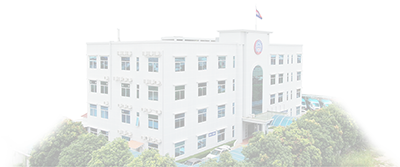


General Background
In 1974, Cambodia became a member of the Codex Alimentarius Commission, which is an institution responsible for developing overall food standards for the Food and Agriculture Organization of the United Nations and the World Health Organization. In 1998, under the initiative of the Food and Agriculture Organization of the United Nations, a national Codex contact point was established within the Ministry of Commerce (CAMCONTROL) as the responsible institution in-charge. The establishment of a national Codex contact point has enabled Cambodia to receive documents from the Codex Commission and to be able to respond from the national stance on issues of quality, safety, and inspection systems of imported and exported goods and foods as requested and prepared by other member states within the framework of the Codex Alimentarius Commission.
The term “Food Standards” has been used as a general term in Codex documents for referring to standards, guidelines, and codes of practice, which were categorized based on specific legal procedures through consultations, conferences, and approval at international level with transparency and consensus in order to protect consumers’ health and to ensure trustworthiness in the international food trade.
So far, the management of Codex was stipulated in Sub-Decree No.05 dated the 3rd of February, 1998, on the Establishment of an Inter-Ministerial Committee Coordinating the Inspection of Quality and Safety of Products and Services and was supplemented by Sub-Decree No.28, dated the 9th of March, 2001.
Composition
Provided that the Codex Alimentarius Commission (International) is an inter-governmental body, the composition of the National Codex Committee consists of representatives from relevant ministries/institutions who have roles in making decisions on policy and national positions on national Codex implementation. Notwithstanding this, food expertise personnel and scientists have been invited to give comments because Codex involves technical and scientific works.
Roles and Functions
The National Codex Committee is the top body of Codex, with the main duty to advise the Royal Government of Cambodia on the advantages and disadvantages of implementing the International Food Standards for the trade sector (especially exports) of Cambodia. Therefore, the National Codex Committee has established a management structure which includes:
The Technical Working Group acts as the Shadow Committee of Codex and the group has duties to review, study and advise on all technical aspects, which have been prepared and proposed by the Secretariat of the National Codex, on the process of preparing new standards or revising standards.
In addition to representatives from institutions / ministries, the Technical Working Group may consist of representatives from stakeholders such as private sector entities and international organizations with the capacity to provide full consultation.
The Benefits of Cambodia's Participation in Codex The issue of standards in development is also considered a priority policy of the Royal Government as stated in the Rectangular Strategy Phase 4 (Rectangle 3, Side 4, Enhancing Competition), which states that: "Continuing to promote the establishment and implementation of products, services and management standards along with regular upgrading of those standards to enhance the adoption of new technology and quality". Cambodia's participation in the preparation and development of food standards within the framework of the Codex Alimentarius Commission will provide significant benefits for the national economy because many food products are currently produced in Cambodia, but most of those product technologies are not yet in line with international standards due to the lack of resources and technical expertise. Consequently, promoting Cambodia’s products to reach standards is an important factor in entering into international markets. Moreover, participation in Codex enables Cambodia to obtain up-to-date information on the development of new technologies and to achieve policy goals in building appropriate monitoring systems; furthermore, Cambodia may benefit from the use of the Risk Assessment conducted by the experts of FAO/WHO for use in the preparation and establishment of the national food control systems.
Share with others